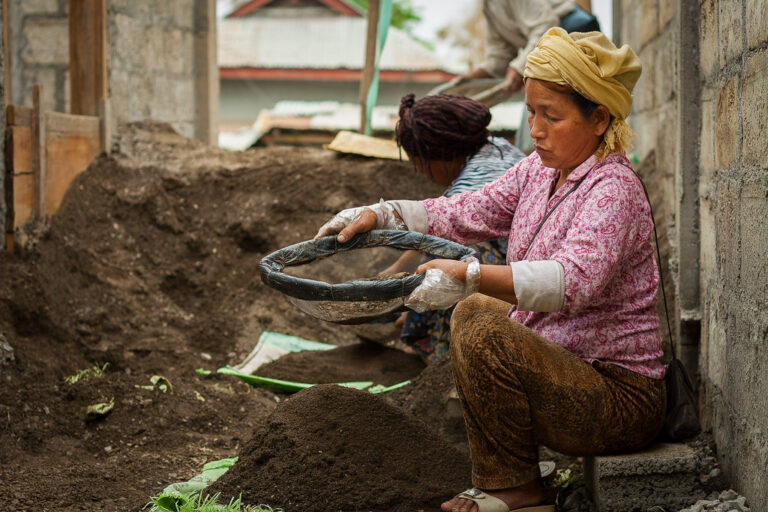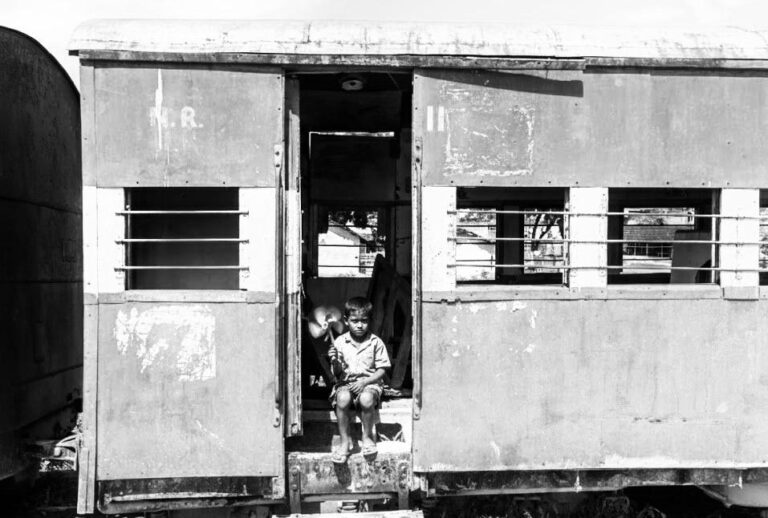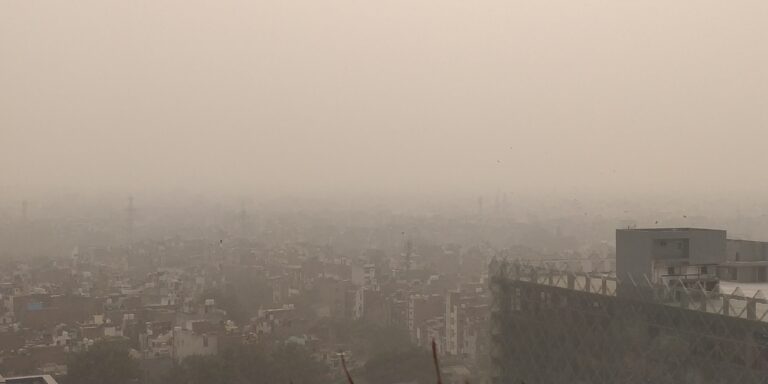
BURKINA FASO - FEBRUARY 01: Captain Thomas Sankara, leader of Burkina Faso. (Photo by William F. Campbell/Getty Images)
A powerful voice from Mali cuts through the myths of sovereignty and denounces a new cycle of domination, this time in the name of “anti-imperialism.”
[The juntas in Burkina Faso, Mali, and Niger present themselves as the vanguard of a new anti-imperialism. By expelling French troops, seizing mines, and invoking the name of Sankara, they have created a powerful narrative of sovereignty that resonates across Africa and beyond. However, beneath the slogans, contradictions abound. Military rule is consolidating, democratic rights are shrinking, and the masses—peasants, workers, and unemployed youth—remain excluded from shaping their future.
This tension lies at the heart of the Sahel today: gestures of defiance against imperialist powers coexist with authoritarian forms of governance that reproduce the very subjugation they claim to resist. For ordinary people, the promised liberation has yet to materialize.
In this context, we present the voice of a young Malian peasant and activist, Sinamban Coulibaly. Speaking under a pseudonym—out of fear of repression in a climate where critics are silenced, jailed, or driven into exile—they offer a rare, unvarnished perspective. Their words remind us that true emancipation cannot be decreed from above by generals but must be forged from below through the struggles of the people themselves. -ed.]
Since the military took power, how have your life and the lives of those around you changed—regarding market prices, work, school, and health?
Sinamban Coulibaly – The military’s arrival in August 2020 initially instilled significant hope among the people, who were already fatigued on various fronts, especially in terms of security. However, the government quickly demonstrated its incapacity and dictatorial nature.
Our already precarious living conditions have deteriorated even further. Previously confined to the country’s northern and central regions, insecurity now permeates the entire territory, particularly in rural areas. Farming, herding, and fishing communities have essentially become prisoners of non-state armed groups, rendering us unable to work.
Urban populations, who rely on small industries, commerce, and manual labor, are now facing an unprecedented energy crisis. Some cities experience prolonged power outages, forcing people to live day by day. In other words, we work during the day to provide for our families at night and the following morning. As a result, the economy has stagnated.
Cities depend on rural produce but often lack the financial resources to make adequate purchases. This lack of purchasing power forces agricultural producers to sell their products at significantly low prices. Additionally, rural populations frequently lack the means to store their agricultural products, resulting in spoilage when items remain unsold.
Armed groups have occupied villages, resulting in the closure of thousands of schools. This issue affects nearly all regions in the north and center, as well as many other areas. Additionally, parents’ inability to pay community teachers—whom they directly employ—has led to the closure of hundreds of public school classes. The state is not adequately recruiting teachers.
The same challenges exist in healthcare, where the system has become increasingly privatized. Without financial means, individuals avoid health centers.
As a response, the military in command has only offered repression.
When you look at the situation in Burkina Faso under Ibrahim Traoré, do you see any differences or, more importantly, any similarities with what Malians are experiencing?
Sinamban Coulibaly – When I assess the situation in Burkina Faso under Ibrahim Traoré, I see no differences compared to what Malians are experiencing. In my view, the circumstances are identical. Many villages in Burkina Faso are relocating to Malian territory and vice versa, depending on which areas are more peaceful.
There is considerable discussion about “national sovereignty.” But what does that mean in practical terms for a peasant family or a young worker in Bamako? Initially, people accepted this vague rhetoric, but over time, it has turned into a joke. What individuals truly want is to alleviate their hunger and thirst. They yearn for an end to the gunfire.
In Burkina Faso, Traoré “promotes” national languages and anti-French rhetoric. Do you believe these gestures genuinely impact people’s lives, or are they primarily symbolic?
Sinamban Coulibaly – They don’t change anything and aren’t even symbolic. We know the popular languages in our country, so why not make them official? If all languages were recognized as official, there would be no confusion about a single working language. This propaganda is designed to create deliberate confusion. The French language continues to dominate.
“France” serves as their primary tool of manipulation. The term “France” does not represent any specific political ideology or governance mechanism. The neoliberalism that oppresses our African peoples is identical to what the French people are also battling against. This rhetoric merely bolsters local oligarchs, who exploit it to increase their power. France has “departed,” yet poverty continues to worsen.
The government claims that the war against jihadists is making progress. However, in villages and rural areas, how do people truly feel—more secure or more afraid?
Sinamban Coulibaly– People are more than afraid; they are terrified. Villages are compelled to comply with the demands of these groups in order to avoid attacks. Recently, armed groups have appeared in public videos to prohibit certain activities, and they enforce their penalties. We live in fear.
Do displaced persons, herders, and rural families feel protected?
Sinamban Coulibaly – In villages and cities alike, people are afraid.
The elections have been postponed several times. How are the people around you coping with these postponements?
Sinamban Coulibaly – People are simply disappointed. Initially, after Choguel Kokala Malga became prime minister during the second state of emergency in May 2021, the government focused its communications on discrediting political parties and civil society. Once the government felt secure, it dissolved political parties and political associations. However, the worsening security situation and the repression within the army have exposed the despotic and freedom-destroying nature of the regime, even to those who may not fully grasp it.
Do you think the junta will give up power soon or stay in control for a long time?
Sinamban Coulibaly – It already believes itself to be an empire with eternal power.
Is there still space for parties, unions, and associations, or has everything been constrained?
Sinamban Coulibaly – For the moment, everything has been stifled. The parties challenged the dissolution decision, which several courts in the capital declared themselves incompetent to rule on, but the Commune I court referred the case to the Constitutional Court via the Supreme Court in August. Do we have an independent constitutional court? It has already let previous decisions pass. However, the court spared unions and non-political associations after their threats failed.
Do you and the people around you feel this pressure—for example, in cuts to health, education, and agriculture?
Sinamban Coulibaly – Of course, we feel the pressure. We have voiced our concerns regarding the issues in health, education, and schools. University students do not receive their scholarships on time. As a result, they spend three years in the same class without advancing to the next level due to ongoing disruptions. The SNESUP (National Union of Higher Education) is on chronic strike, advocating for better working conditions, including the need for more teaching staff and adequate lecture halls.
Healthcare unions are experiencing similar challenges, although they cannot sustain their strikes for long due to their social responsibilities. The strikes occurring in the banking and financial sectors further highlight this situation.
The agricultural situation is dire. Many cotton farmers have not received payment for last season’s crops. Additionally, subsidies for essential inputs for food crops this season have not been delivered in sufficient quantities or on time. Grain producers are at risk of facing famine next year. We are just a month and a half away from harvest, yet fertilizers have not yet arrived in the fields. I must stress that the quantity of fertilizers available is inadequate. It’s a terrible situation.
There is no support for producers to prepare their fertilizers. Moreover, it is important to acknowledge that the leaders have mismanaged these borrowed funds.
Has the break with France genuinely resulted in any economic changes, or does our reliance on the IMF, the World Bank, and other partners continue unchanged?
Sinamban Coulibaly – I have stated that we should not view France as a political ideology or a governing mechanism. Our reliance on these partners persists. Each day, our state incurs debt with the International Monetary Fund and the World Bank.
For instance, at the end of the first quarter of 2024, specifically in April, the IMF provided emergency financing amounting to $120 million “to address urgent needs concerning food imports and to ensure liquidity.”
A year later, in April 2025, the IMF approved a disbursement of $129 million under the Exogenous Shock Window of the Rapid Credit Facility (RCF) to address the impacts of flooding.
The World Bank entered into an agreement with Mali in October 2021 to finance projects focused on enhancing social inclusion, health, access to energy, and land transport.
In December 2022, two additional agreements were signed, amounting to 188.26 billion CFA francs. The World Bank approved a loan of $100 million to improve access to water. These examples illustrate the ongoing financial initiatives in the region.
There are no significant partners apart from the World Bank. In the realm of armaments, Russia, China, and Turkey are making efforts under notably opaque conditions, leaving citizens uninformed about the terms of acquisition. These countries also exert pressure on the extractive economy, particularly China, which devastates our environment with impunity while harming populations in areas resistant to environmental degradation. This trend is particularly evident in Keniéba in the Kita region of the far west, Kangaba in the Koulikoro region to the southwest, and Yanfolila in the Sikasso region in the south of the country.
In your opinion, what would a true policy of economic and social sovereignty in Mali look like?
Sinamban Coulibaly – True sovereignty fundamentally relies on the implementation of a genuine development policy that accurately reflects the conditions in Mali and the Southern region. It is essential to establish a popular, participatory democracy.
Economic sovereignty is intrinsically linked to political sovereignty. Currently, we must consider a collective outside the imperialist spheres that are taking centre stage, seeking to recruit countries in the South that need to recognise that they are the real force. I believe that notable thinkers such as Eric Toussaint, Arnaud Zacharie, and others have made important advances in this direction.
Many people discuss the abuses perpetrated by the army and its allies. The Moura massacre in 2022 remains vivid in everyone’s memory. How do you and those around you address this issue today?
Sinamban Coulibaly – In truth, chauvinism dominates discussions surrounding army matters.
We acknowledge that abuses have occurred, particularly with the influx of so-called Russian instructors, referred to as the merchants of war. It is crucial that we discuss these issues to prevent recurrence. Such abuses breed frustrations that complicate the struggle and can threaten the integrity of the nation-state.
Can you talk about it freely, or is there a fear of reprisals?
Sinamban Coulibaly – We are not free to talk about it. There are already reprisals surrounding the issue. Under democratic regimes, political leaders who have consistently denounced such situations face persecution for their outspokenness. Some have been forced into exile. One example is Dr Oumar Mariko, president of the African Solidarity for Democracy and Independence (SADI) party.
Even in social movements, activists who speak out about abuses are considered enemies and are first repressed within the movement.
Does this violence reinforce mistrust of the state and facilitate jihadist recruitment?
Sinamban Coulibaly – Naturally, that’s why I say it can create frustrations that encourage criminal jihadist activities.
In reality, in some localities, people no longer trust the authorities for many reasons; they are repressed because of their ethnicity. So when you are repressed by those who are supposed to protect you, who do you turn to? You turn to those who claim to be fighting against them. Farmers are being deprived of their fertile land, passed down from generation to generation, and are losing court cases, while terrorist forces often cry out against these injustices. This is where these criminal organisations discover recruitment opportunities. The state must be a guarantor of security and social justice.
How are women, young people, and displaced individuals experiencing this period of war and crisis?
Sinamban Coulibaly – The situation is catastrophic. There is a severe lack of shelter, and access to food, education, and healthcare has become a luxury for these displaced populations.
Do you see any local initiatives, led by women, young people, or communities, that offer a different future?
Sinamban Coulibaly – Yes, however, the security situation presents serious difficulties. Associations and farmers’ cooperatives are still striving to make a difference where possible in certain localities. The NGOs that previously supported these initiatives are now operating less frequently due to insecurity or a lack of funding.
Desertification and drought are affecting Mali. How are the farmers and herders around you suffering from this?
Sinamban Coulibaly – Farmers are finding it increasingly difficult to sustain their livelihoods from their crops, which are yielding progressively less. Rainfall is often scarce, and runoff frequently washes away crops.
As for herders, their livestock have little to eat, and the encroachment on forests for fertile land provides them with minimal grazing space. This naturally creates conflict between these two groups involved in agriculture.
What does food insecurity look like in villages today—food shortages, migration, dependence on aid?
Sinamban Coulibaly – Food shortages and migration are the primary contributors to food insecurity in villages today. The exodus has become the only option for able-bodied workers. Aid is virtually non-existent, and what little there is tends to be symbolic and humiliating.
Is the state genuinely supporting agriculture and food production, or is the war overshadowing everything?
Sinamban Coulibaly – Regardless of the war, support for food production is not a priority for the state. Currently, subsidies for cotton inputs are plentiful, unlike those for food crops. This situation reflects a particular political vision. The system appears indifferent to food; it primarily promotes industrial crops. This incident is unrelated to the war.
You may be aware of some local responses—such as cooperatives, traditional practices, and women’s initiatives. Can you provide a few examples?
Sinamban Coulibaly – Such initiatives do exist. Women in villages today are coming together to assist one another during the rainy season, working in each other’s fields daily without pay.
Often, individuals take one day off per week to work for a third party in exchange for payment, which is then contributed to a solidarity fund that they manage themselves. Young people are also involved in this practice, and it is quite common in villages, especially in the Bèlèdougou region in the southwest and the west-east of the country.
In certain regions, this cooperative endeavour exclusively takes place during harvest season, guaranteeing the preservation of ripe crops for families with insufficient labour.
Some assert that Mali and Burkina Faso represent a form of “new African independence”. Do you believe this is true independence, or is it merely a shift from French influence to Russian?
Sinamban Coulibaly – Personally, I do not perceive any genuine independence in the current situation. We are witnessing a new form of Balkanization, orchestrated by one faction of imperialism against another.
A slave seeking freedom does not choose another master.
What lessons should other countries in the Sahel—or even a country like India—learn from this experience?
Sinamban Coulibaly – I would suggest that individuals organise their political struggles by establishing ideological understanding. Any large protest movement led by individuals lacking a shared political vision and class consciousness tends to empower the ruling classes, who oppose one another merely to gain control over the country’s wealth and serve the interests of the working masses.
It is crucial not to endorse anti-democratic sentiments simply because a temporary government has failed to meet expectations; there is no viable alternative to democracy that allows the masses to rise against injustice. Countries in the Global South must recognise that neither the Western bloc nor the BRICS can provide salvation; they are in conflict over monopolistic control.
Many progressive activists in India and elsewhere admire the speeches of Ibrahim Traoré and the Malian junta. What would you like to convey about the realities faced by the people?
Sinamban Coulibaly – Popular struggles and freedoms are being eroded. We are becoming battlegrounds for imperialists of various kinds.
Finally, what form of international solidarity can genuinely assist Malians today—and what types of support are more likely to reinforce authoritarianism?
Sinamban Coulibaly – Malians require support to demand peace and both individual and collective freedoms. Assistance should concentrate on elucidating the mechanisms of capitalism and its associated conflicts, rather than solely invoking the term “France”, which obscures the oppression exerted by the local business elite.



